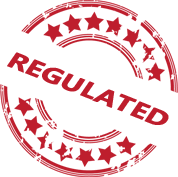Regarding the legitimacy of HSBC forex brokers, it provides SFC, SFC and WikiBit, .
Is HSBC safe?

Business

Risk Control

Is HSBC markets regulated?
The regulatory license is the strongest proof.
SFC Market Making License (MM)
Securities and Futures Commission of Hong Kong
Securities and Futures Commission of Hong Kong
Current Status:
RegulatedLicense Type:
Market Making License (MM)
Licensed Entity:
HSBC Broking Forex (Asia) Limited
Effective Date:
2004-09-10Email Address of Licensed Institution:
nettrader@hsbc.com.hkSharing Status:
No SharingWebsite of Licensed Institution:
www.hsbc.com.hk/brokingExpiration Time:
--Address of Licensed Institution:
香港皇后大道中1號滙豐總行大廈25樓Phone Number of Licensed Institution:
--Licensed Institution Certified Documents:


SFC Derivatives Trading License (AGN)
Securities and Futures Commission of Hong Kong
Securities and Futures Commission of Hong Kong
Current Status:
RegulatedLicense Type:
Derivatives Trading License (AGN)
Licensed Entity:
HSBC Broking Futures (Asia) Limited
Effective Date:
2004-09-10Email Address of Licensed Institution:
nettrader@hsbc.com.hkSharing Status:
No SharingWebsite of Licensed Institution:
www.hsbc.com.hk/brokingExpiration Time:
--Address of Licensed Institution:
香港皇后大道中1號滙豐總行大廈25樓Phone Number of Licensed Institution:
--Licensed Institution Certified Documents:


Is HSBC Safe or Scam?
Introduction
HSBC, officially known as the Hongkong and Shanghai Banking Corporation, is one of the largest banking and financial services organizations in the world. Established in 1865, it has a significant presence in the foreign exchange (forex) market, offering a wide range of trading services for both retail and institutional clients. Given the complexity and risks associated with forex trading, it is crucial for traders to carefully evaluate the credibility of their brokers. The forex market is rife with both reputable firms and scams, making due diligence essential for protecting investments.
In this article, we will investigate whether HSBC is a safe broker or a potential scam. Our analysis is based on various sources, including regulatory information, company background, trading conditions, and customer experiences. By employing a structured assessment framework, we aim to provide a comprehensive overview of HSBC's operations in the forex market, ultimately answering the question: Is HSBC safe?
Regulation and Legitimacy
The regulatory environment plays a vital role in determining the safety and legitimacy of a forex broker. HSBC is regulated by several authorities, including the Securities and Futures Commission (SFC) in Hong Kong, which oversees its forex trading operations. The SFC is known for its stringent regulatory standards, ensuring that financial institutions adhere to high levels of transparency and ethical conduct.
| Regulatory Authority | License Number | Regulatory Region | Verification Status |
|---|---|---|---|
| Securities and Futures Commission (SFC) | AAG 075, ACL 069 | Hong Kong | Verified |
HSBC holds two essential licenses: one for dealing in futures contracts and another for leveraged foreign exchange trading, both effective since September 10, 2004. The presence of these licenses indicates that HSBC is authorized to conduct forex trading activities, which is a positive sign for potential clients.
Moreover, HSBC has a long-standing history of compliance with regulatory requirements, with no significant negative disclosures reported. This regulatory oversight enhances the broker's credibility and provides a layer of protection for traders. Therefore, based on its regulatory status, HSBC is safe for trading activities.
Company Background Investigation
HSBC has a rich history dating back to its founding in 1865, primarily to facilitate trade between Europe and Asia. Over the years, it has grown into a global financial powerhouse, operating in over 80 countries with approximately 7,500 offices worldwide. The bank is publicly traded and has a diverse ownership structure, with shares held by institutional and retail investors.
The management team at HSBC comprises seasoned professionals with extensive experience in banking and finance. The leadership's background includes various roles in risk management, compliance, and financial operations, underscoring the company's commitment to strong governance and ethical practices.
In terms of transparency, HSBC provides comprehensive information about its services, financial performance, and regulatory compliance on its website. The availability of educational resources and market insights further enhances its transparency, making it easier for clients to make informed decisions. Overall, the company's robust background and governance structure contribute to its reputation as a trustworthy broker, reinforcing the assessment that HSBC is safe for forex trading.
Trading Conditions Analysis
When evaluating a forex broker, understanding the trading conditions is crucial. HSBC offers competitive trading fees and a transparent pricing structure. The broker charges a commission of 1% on trades, which is fairly standard within the industry.
| Fee Type | HSBC | Industry Average |
|---|---|---|
| Major Currency Pair Spread | 1% | 1-1.5% |
| Commission Structure | 1% | 0.5-2% |
| Overnight Interest Range | Varies | Varies |
While HSBC's commission structure is competitive, it's essential to note that the broker may have additional fees that could impact overall trading costs. For instance, there might be fees associated with account maintenance or inactivity. Traders should carefully review the fee schedule to avoid any unexpected charges.
The overall trading conditions at HSBC are favorable, especially for those looking for a reliable and established broker. However, traders should remain vigilant about any potential hidden fees that could arise, ensuring they have a clear understanding of the costs involved. This transparency in fees further supports the claim that HSBC is safe for forex trading.
Client Fund Security
The safety of client funds is a paramount concern for traders when choosing a forex broker. HSBC employs several measures to ensure the security of client funds, including strict segregation of client accounts. This means that client funds are kept separate from the company's operational funds, reducing the risk of misuse.
Additionally, HSBC is a member of the Investor Compensation Fund, which provides further protection for clients in the event of the broker's insolvency. The bank also implements robust risk management practices and has a comprehensive compliance framework in place to safeguard client assets.
Historically, HSBC has maintained a strong track record regarding client fund security, with no significant incidents of fund mismanagement or malpractice reported. This history of safeguarding client assets reinforces the conclusion that HSBC is safe for forex trading, as it prioritizes the protection of its clients' investments.
Customer Experience and Complaints
Customer feedback is a critical aspect of evaluating any broker's reliability. HSBC has received a mix of reviews from clients, with many praising its customer service and trading platform. However, some common complaints include delays in fund withdrawals and long wait times for customer support responses.
| Complaint Type | Severity Level | Company Response |
|---|---|---|
| Withdrawal Delays | Moderate | Addressed but slow |
| Customer Support Wait Times | High | Improvement needed |
| Platform Issues | Low | Generally stable |
For instance, some clients have reported challenges in withdrawing funds promptly, leading to frustration. While HSBC typically addresses these complaints, the response time could be improved. Overall, while there are some concerns, the majority of feedback suggests that clients generally have a positive experience with HSBC, further supporting the assertion that HSBC is safe for trading.
Platform and Trade Execution
HSBC's trading platform is designed to provide users with a seamless trading experience. The platform is generally stable, allowing for efficient order execution. However, there have been occasional reports of slippage and rejected orders, which can be concerning for active traders.
The overall execution quality is satisfactory, with most clients reporting that their trades are executed at expected prices. Nevertheless, traders should remain cautious and monitor their trades closely, especially during volatile market conditions.
In summary, the trading platform's performance and execution quality indicate that HSBC is safe for forex trading, although traders should stay informed about potential execution risks.
Risk Assessment
When using any forex broker, it is essential to consider the associated risks. HSBC, while generally reputable, is not without its risks.
| Risk Category | Risk Level (Low/Medium/High) | Brief Description |
|---|---|---|
| Regulatory Risk | Low | Strong regulatory oversight |
| Operational Risk | Medium | Potential for platform issues |
| Market Risk | High | Forex trading inherently risky |
To mitigate these risks, traders should employ sound risk management practices, such as setting stop-loss orders and diversifying their trading strategies. Additionally, staying informed about market conditions and HSBC's operational updates can help traders navigate potential challenges effectively.
In conclusion, while there are inherent risks in trading, the overall risk profile associated with HSBC suggests that HSBC is safe for forex trading.
Conclusion and Recommendations
After a thorough investigation, it is clear that HSBC is a legitimate and regulated forex broker with a long-standing history in the financial services industry. The company's robust regulatory framework, commitment to client fund security, and generally positive customer feedback support the conclusion that HSBC is safe for trading.
However, potential clients should remain vigilant about any fees and be aware of the possibility of delays in withdrawals or customer support responses. For traders seeking alternatives, reputable brokers such as IG Group or OANDA may also be worth considering.
In summary, while HSBC has some areas for improvement, it stands as a reliable option for forex trading, and traders can proceed with confidence knowing that HSBC is safe for their trading activities.
Is HSBC a scam, or is it legit?
The latest exposure and evaluation content of HSBC brokers.




HSBC Similar Brokers Safe
Whether it is a legitimate broker to see if the market is regulated; start investing in Forex App whether it is safe or a scam, check whether there is a license.
HSBC latest industry rating score is 6.54, the higher the score the safer it is out of 10, the more regulatory licenses the more legitimate it is. 6.54 If the score is too low, there is a risk of being scammed, please pay attention to the choice to avoid.
